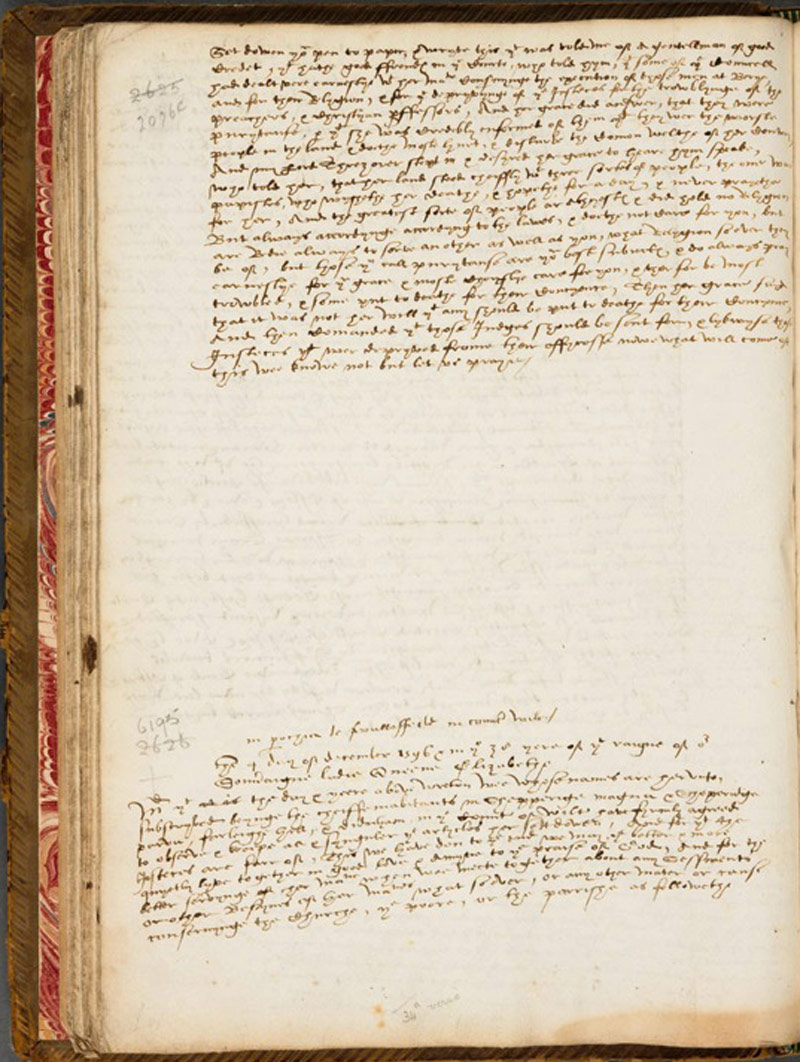Posted on Mon., Oct. 17, 2011
With the recent death of Patrick Collinson, Regius Professor Emeritus of History at the University of Cambridge, scholarship on the social and political history of early modern England will be much diminished. See his obituary on the website of the Daily Telegraph.
But his passing is of local significance in other ways. As the lively and nostalgic passages in his wonderfully entertaining autobiography—The History of a History Man—suggest, Pat (as he was universally known) loved the Huntington Library and its environs. He evidently relished the opportunity to participate in a lively scholarly community while he was in Pasadena and he made some archival discoveries here that were to be of fundamental significance to the development of his revolutionary historical thinking about the nature of the 16th-century English polity.
During his tenure of a Mellon fellowship in 1984, he was beginning to reflect on the ambiguous nature of Tudor government; self-evidently monarchical under the rule of Queen Elizabeth, but at the same time a monarchy within which there was very strong tradition of participation, not only through parliament but also in the privy council. While at The Huntington, Pat stumbled across what manuscripts curator Mary Robertson has called a "scruffy little manuscript" in the Ellesmere papers—the minutes of what would become known later as a vestry or "town meeting" that met during the harsh winter of 1596 in the Wiltshire village of Swallowfield.

Folio 34a (verso) of The Huntington's manuscript (EL 6162), showing the beginning of the Swallowfield "Articles." Copyright Huntington Library, Art Collections, and Botanical Gardens.
What Pat described as the "thoroughly political" arrangements for the government of this otherwise obscure rural community convinced him that the Elizabethan "monarchical republic" had very deep roots. The tradition of "self-government at the king's command" found expression not only in the privy council and on the county bench of magistrates but even in rural villages. He thus exposed the latent strength of a polity that had succeeded even by the late 16th-century in encouraging a popular sense of civic obligation among relatively humble people who were prepared to take on local political responsibility both for the better service of her majesty and to ensure that social harmony was preserved in the neighborhood.
When Pat's analysis was first published in the late 1980s, the "scruffy little manuscript" from The Huntington became a leitmotif of what he christened the "new political history," or "social history with the politics put back." And when Pat assumed his new position as Regius Professor in Cambridge in 1988, I was among the cohort of new Ph.D. students in early modern history who were commencing research at the same time. It was from Pat that I first heard mention of the Huntington Library; it was in his footnotes that I first saw the magical reference to The Huntington's Ellesmere manuscript collection; and it was at his encouragement that I undertook research on the local context at Swallowfield and published an edition of the "Articles" in the Historical Journal in 1999) .
The last letter I received from him in April 2011 was full of the warmest congratulations upon my appointment as director of research at The Huntington. Pat was one of the most generous and enthusiastic mentors a younger scholar could ever hope to meet, a characteristic to which a generation of Cambridge-based graduate students would testify. With Patrick Collinson's passing, the world of early modern history has suffered a great loss. And both The Huntington and its new director of research have lost a very close friend. It might be true, as Pat himself said, that "not everyone" had heard of Swallowfield in 1984—well, they have now.
Collinson's autobiography, The History of a History Man, was published by Boydell and Brewer and the University of Rochester Press. His analysis was first published in the late 1980s, and the relevant essays, "The Monarchical Republic of Queen Elizabeth I" and "De Republica Anglorum: Or, History with the Politics Put Back," are both reprinted in Collinson, Elizabethan Essays (1994).
Steve Hindle is the W. M. Keck Foundation Director of Research at The Huntington.
